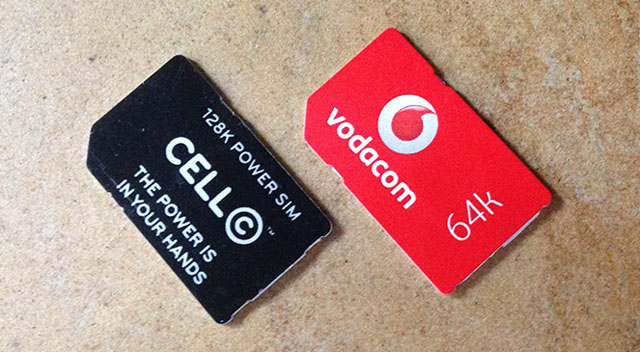
Cell C has won its latest skirmish with Vodacom at the Advertising Standards Authority, this time over an advertisement its bigger rival ran in a Sunday newspaper last month promoting its international tariffs.
Cell C, through its advertising agency, lodged a competitor complaint against Vodacom over the ad, which was published in the Sunday Times on 2 June. The ad promoted Vodacom’s 89c/minute calling plan.
The basis of Cell C’s complaint was that the “overwhelming communication” in Vodacom’s ad was that its subscribers could call a “significant number of worldwide destinations for 89c”. It said the ad was misleading as it created the impression that all calls were charged at 89c when in actual fact they were “from 89c”.
“Of the 117 identified countries, only 39 offer the 89c promotion,” the complaint read. “The next price is R1,19; and 40 of the countries bill R2,89.”
Cell C said that 39 out of the 117 identified countries was not significant enough to warrant the claim, and argued that it was therefore misleading.
In reply, Vodacom, through its ad agency, denied Cell C’s allegations, arguing that a “reasonable consumer” would be likely to visit the company’s website for further details. It also submitted confidential annexures showing that countries on the 89c plan were responsible for 64% of total international calling traffic.
But the Advertising Standards Authority, in its ruling, found that the “hypothetical reasonable person reading the advertisement would believe that if he opted for this offer, he would be able to call the US and 117 other countries for 89c/minute always”.
“The communication created by the wording and construction of the advertisement is that consumers can call 117 countries for 89c/minute, and the fact is that the promotional price is for 39 countries only,” it said. “Even if as claimed by the respondent, the 39 countries which are billed at 89c/minute constitute 64% of the international calling traffic, the communication is still misleading as consumers expect to pay 89c for 117 countries as claimed in the advertisement. In addition, the fact that 39 countries constitutes 64% of the international calling traffic does not correct the misleading impression.”
Vodacom’s disclaimer, in which it explained that the 89c/minute tariff was to 39 countries, would most likely be overlooked by readers, the authority said.
“The respondent has explained that there are further terms and conditions in its website. However, this does not clear the misleading communication that has already been created in the print advertisement, such that the respondent will check the details or identification of the 117 countries included in the offer.
“The respondent can also not rely on this disclaimer to clear the misleading impression already created in the advertisement, as it is extremely small and practically unnoticeable, and it contains material conditions relating to the promotion which should have been communicated beforehand.”
The authority ruled that Vodacom must withdraw the ad immediately on receipt of its ruling and may not use it again. — (c) 2013 NewsCentral Media




